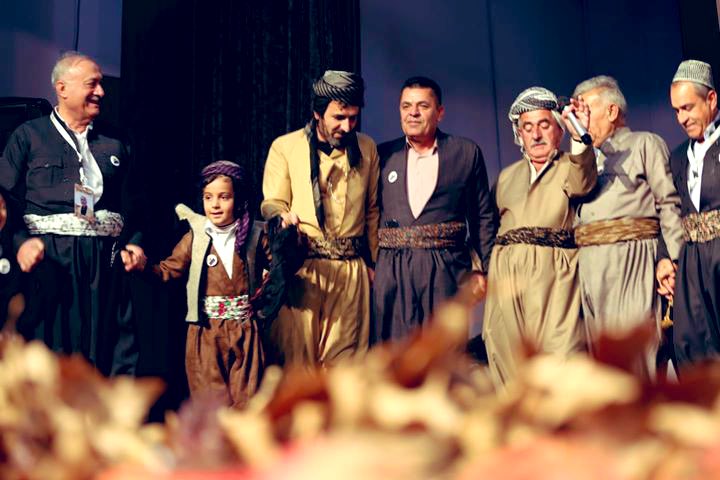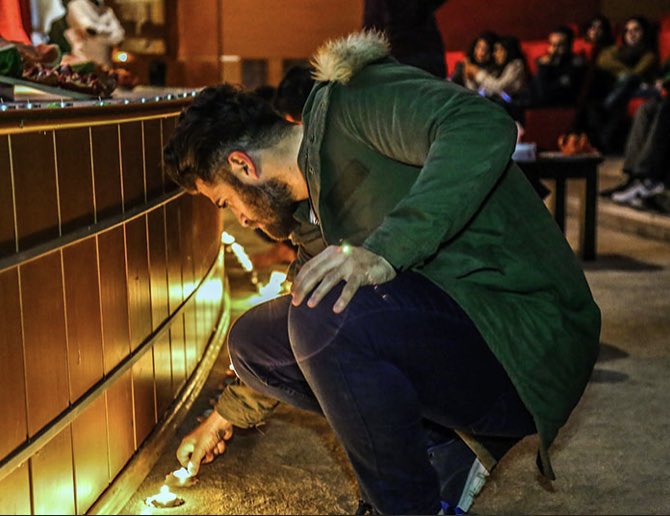 Tonight is Şeva Çile (night of forty) or Çiley Zistan (the fortieth of winter) - also known as Night of Yalda (birth). An ancient tradition still observed by some Kurdish communities. Happy Çile! #wintersolstice
Tonight is Şeva Çile (night of forty) or Çiley Zistan (the fortieth of winter) - also known as Night of Yalda (birth). An ancient tradition still observed by some Kurdish communities. Happy Çile! #wintersolstice
The name derives from çil meaning forty, referring to the initial forty-day period of the three-month winter. Yalda means birth in Syriac language. The first winter month of the Kurdish calendar is Befranbar. https://twitter.com/lawwwen/status/1213442159938019329
The winter solstice is the longest night of the year, and the shortest day of the year as the days slowly grow longer the day after. Kurds and other peoples used to observe and celebrate the winter solstice, an ancient tradition with origins probably going back to Mithraism.
In antiquity, the night was marked by the cosmic battle between light and darkness which culminated with the rebirth of the sun. The winter solstice was the coldest night when dark spirits were at their strongest. The rebirth of the sun symbolized light wining over darkness.
Observing the winter solstice is a global tradition, especially in Indo-European cultures. People in Scandinavia celebrated Midvinterblót and Yule which later came to be replaced by Christianity’s Jul (Christmas). Brumalia was celebrated in ancient Rome and Koročun among Slavs.
Çile is today an unofficial holiday in Kurdistan but some have revived or adopted the tradition as a way of keeping cultural traditions alive. It has also gained more popularity in recent years through cultural activities such as concerts, poetry readings and other activities.
Apart from increased media attention, the tradition is also found in linguistic expressions; çiley zistan is used for “very cold” for example. Night of Yalda is also a common theme in Kurdish poetry.
Şewî Yelda ye,
ya deycûre emşew
Ke dîdem dûr le to,
bê nûre emşew
- Nalî
Şewî Yelda ye,
ya deycûre emşew
Ke dîdem dûr le to,
bê nûre emşew
- Nalî
The winters were harsh so people would gather inside and stay up throughout the night, eating, playing traditional games, pray and telling stories are typical Çile activities. It was, and still is in some places, customary to light candles or small bonfires outside the homes.
The custom of kindling fires actually belongs to a ‘collection’ of winter festivals among Iranic speaking/influenced peoples called Seda. This was traditionally done 40 days after the winter solstice, on or around January 30 in the Gregorian calendar.
The Seda tradition have (historically) been reported in the region of Rewandiz as well as among Kurdish tribes of Mukriyan, Kirmaşan and Qesrî Şîrîn, whose festival of “weharî kurdî” (Kurdish Spring) falls on the 45th day of winter.
Fruits, seeds and nuts such as pomegranates and chestnuts form a central part of the Çile night. Another winter tradition called Bêlbêlava have survived in some areas of Badînan where children go out for trick-or-treat. Wish you all a blessed Çile and brighter days ahead.

 Read on Twitter
Read on Twitter

















